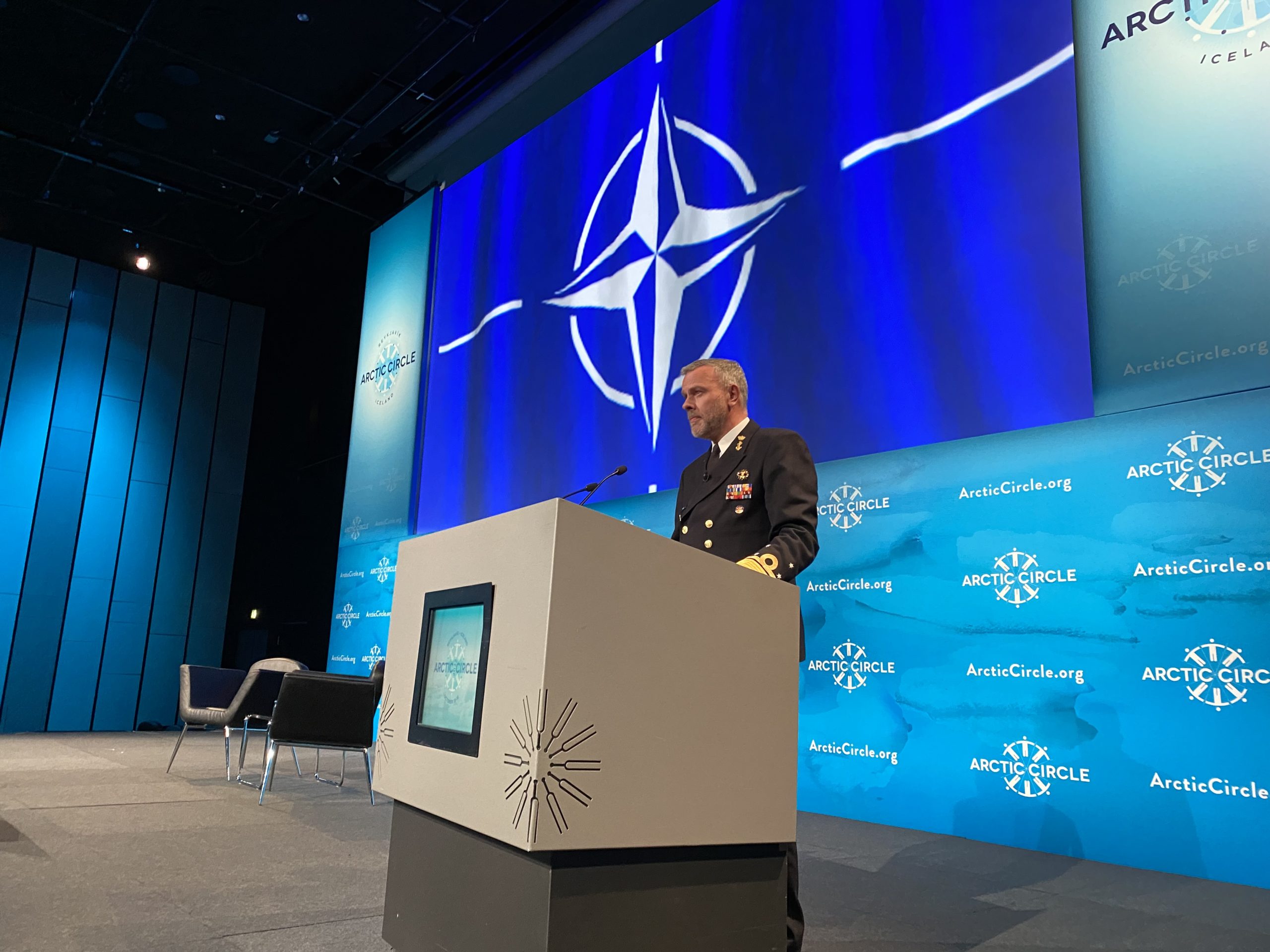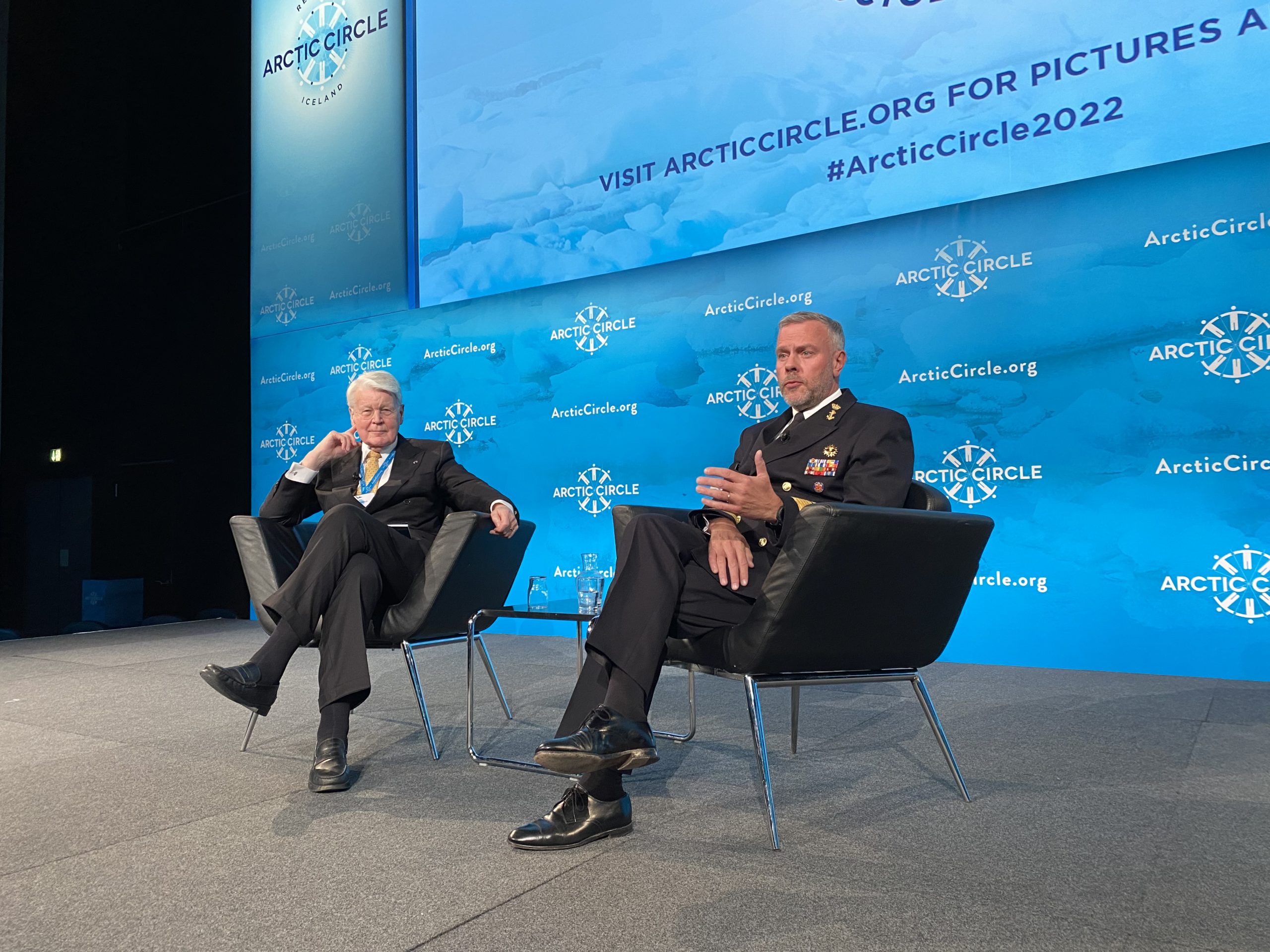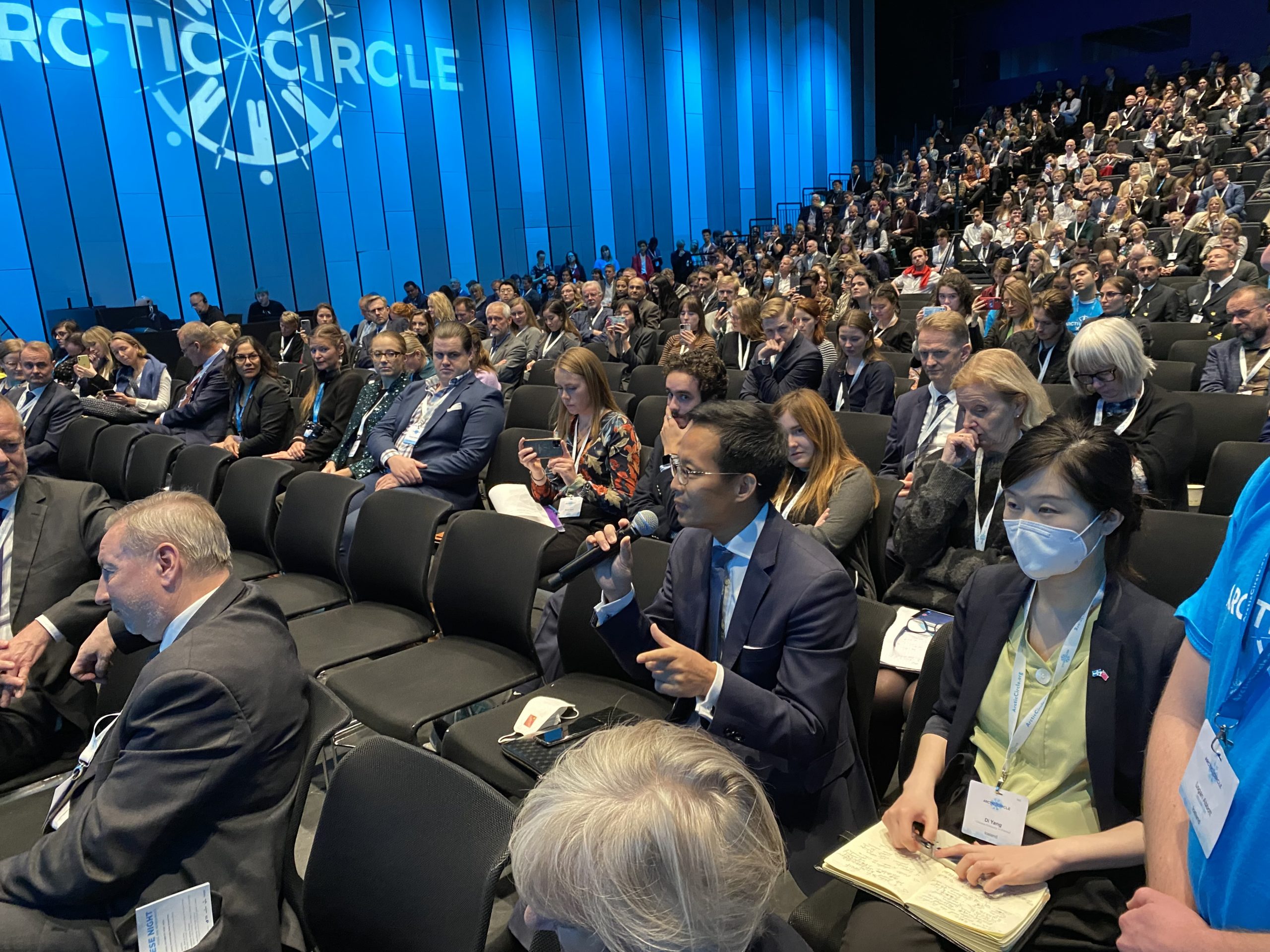A wary NATO watches the Arctic for Russian — and Chinese — aggression
NATO allies are increasing their focus on the North in case of potential escalation in this “pivotal moment for global security,” NATO's military chief said.

REYKJAVIK — NATO won’t ramp up activity in the Arctic after Sweden and Finland’s accession — unless Russia makes offensive moves in the region, Adm. Rob Bauer, chair of the alliance’s military committee, told ArcticToday on Saturday.
“We will focus first and foremost on properly integrating Finland and Sweden in NATO,” he said. “I don’t think the focus is, because they joined, that we then do more in the Arctic.”
But NATO would respond in the region if Russia makes the first move, and allies are increasing their focus and capabilities in case of potential escalation in the North, he said.
“If the Russian actions basically force us to protect ourselves in a way that is different from what we do now, then that is the reason why we would be more present in the Arctic.”
NATO is a defensive alliance, and it never strikes preemptively, Bauer said during a talk earlier Saturday at the Arctic Circle Assembly in Reykjavik, Iceland.
Yet NATO sees Russia as “the most significant and direct threat to our security,” he said in a speech to the assembly. “We are seeing a disturbing pattern of increasingly aggressive behavior.”
Russia seeks to destabilize countries through conventional, cyber, and hybrid means — including its recent invasion of Ukraine, which is causing an “unprecedented level of destruction, violence, and displacement, reminiscent of Europe’s darkest days of the last century, when the rule of force eclipsed the rule of law,” Bauer said.

Allies are also watching Chinese activities in the North closely, and in light of potential threats from Russia and China, NATO must “increase its presence in the high north,” Bauer said. In addition to pending membership from Sweden and Norway, a joint force command in Norfolk, Virginia, is monitoring the Atlantic, and allies are investing in new fighter planes, maritime surveillance aircraft and Arctic-ready vessels.
“NATO and allies are conducting more and more Arctic and anti-submarine exercises in order to ensure our forces remain ready to operate in all conditions,” he said. NATO conducted an air operation in Norway with Norwegian, American, and Turkish fighter jets last month.
In the Arctic, Russia has placed restrictions on the Northern Sea Route, which NATO sees as open waters. “Ensuring freedom of navigation and unfettered acces[s] is essential” in the North, Bauer said in a tweet following his speech.
A threat from China?
Russia is NATO’s top threat at the moment, but Bauer also pointed to China’s increased presence in the region, including immense investments in energy, infrastructure, and research. An Arctic with less ice means naval formations could move more quickly from the Pacific to the Atlantic, and submarines could “shelter in the Arctic everywhere,” he said.
But at the Reykjavik event, one Chinese official objected to this characterization.
In a question-and-answer session after Bauer’s speech, He Rulong, who arrived on Feb. 26, 2022, as the Chinese ambassador to Iceland, said that the admiral’s remarks were “filled with arrogance and also paranoia.” He argued that China’s activities in the Arctic should not be viewed with suspicion or singled out.

“If the intentions of China are opposing our values and interests and the rules-based international order, then NATO has to do some — NATO has to take steps to make sure that we are able to deter and defend the threats that come from that direction,” Bauer said.
He asked the ambassador why China had not yet condemned Russia’s aggression against Ukraine; the ambassador responded that China looks at the conflict from the “international, historical and also the current [context] with the long-term perspective.”
Chinese and Russian ties in the Arctic have strengthened in recent months. In February 2022, Beijing and Moscow pledged in a joint statement to increase cooperation on sustainable development in the region, and Chinese and Russian warships conducted a joint exercise in the Bering Sea last month.
What Finland and Sweden bring to NATO
NATO allies are renewing commitments to meet the defense spending pledge of 2 percent of their GDP and 20 percent of their defense budget on investments, Bauer said in his remarks, and Finland and Sweden’s “historically fast” application to join the alliance would cover 96 percent of the EU’s population. “This is a pivotal moment for global security.”
The two Nordic countries’ close proximity to Russia — especially Finland’s long border with Russia — brings “centuries’ worth of valuable knowledge and intelligence” to the alliance, and the nations’ frequent joint military exercises over two decades means the Finnish and Swedish Armed Forces are already “highly compatible” with NATO allies, Bauer said.
“Soon, with seven out of eight Arctic states being part of this great alliance, we will do everything we can to make sure the Arctic remains free and open,” he said.
All existing NATO members except for Turkey and Hungary have ratified the accession of Sweden and Finland. But the two Nordic nations reached an agreement on Turkey’s concerns in June, and “I’m convinced that both nations will ratify the membership of NATO,” Bauer said.
Ministers of defense from NATO’s 30 member nations as well as from Finland and Sweden, which have requested membership in the alliance, met on Thursday and made it clear that support for Ukraine will continue for as long as it takes, Bauer said. “But this is not the West against the rest. This is about the rules-based international order.”